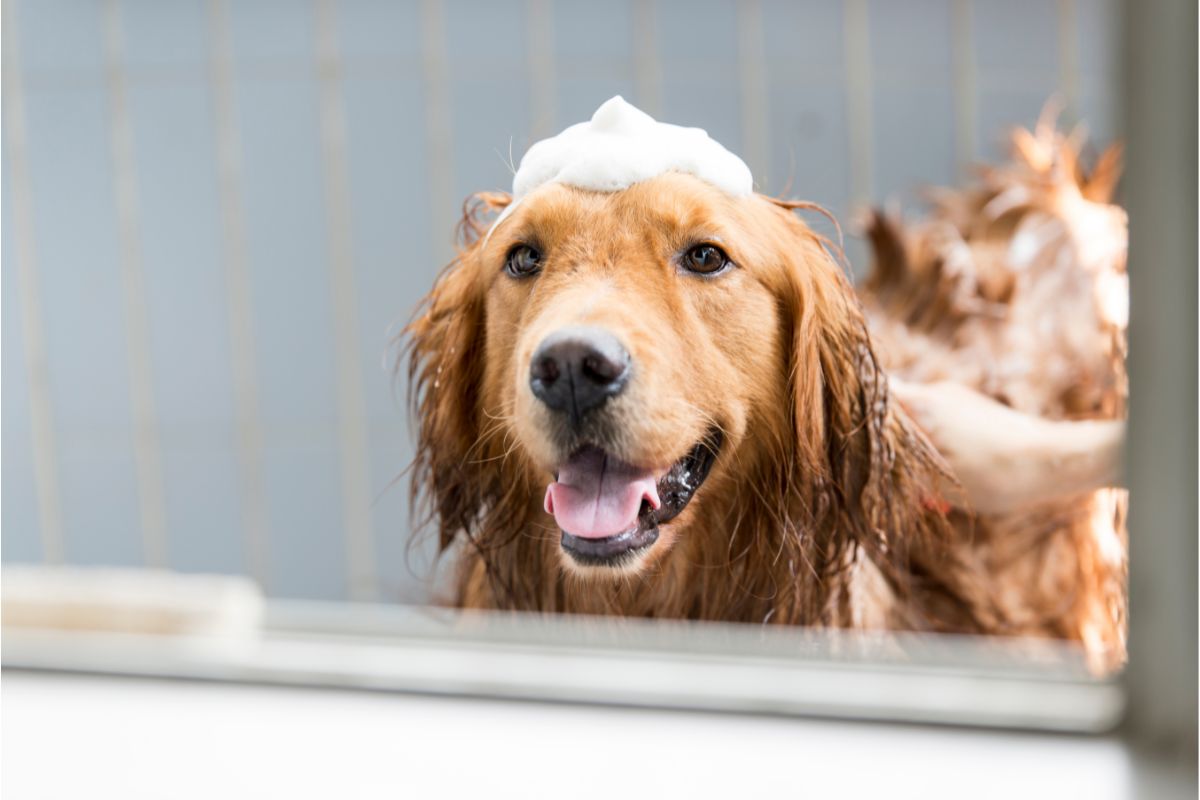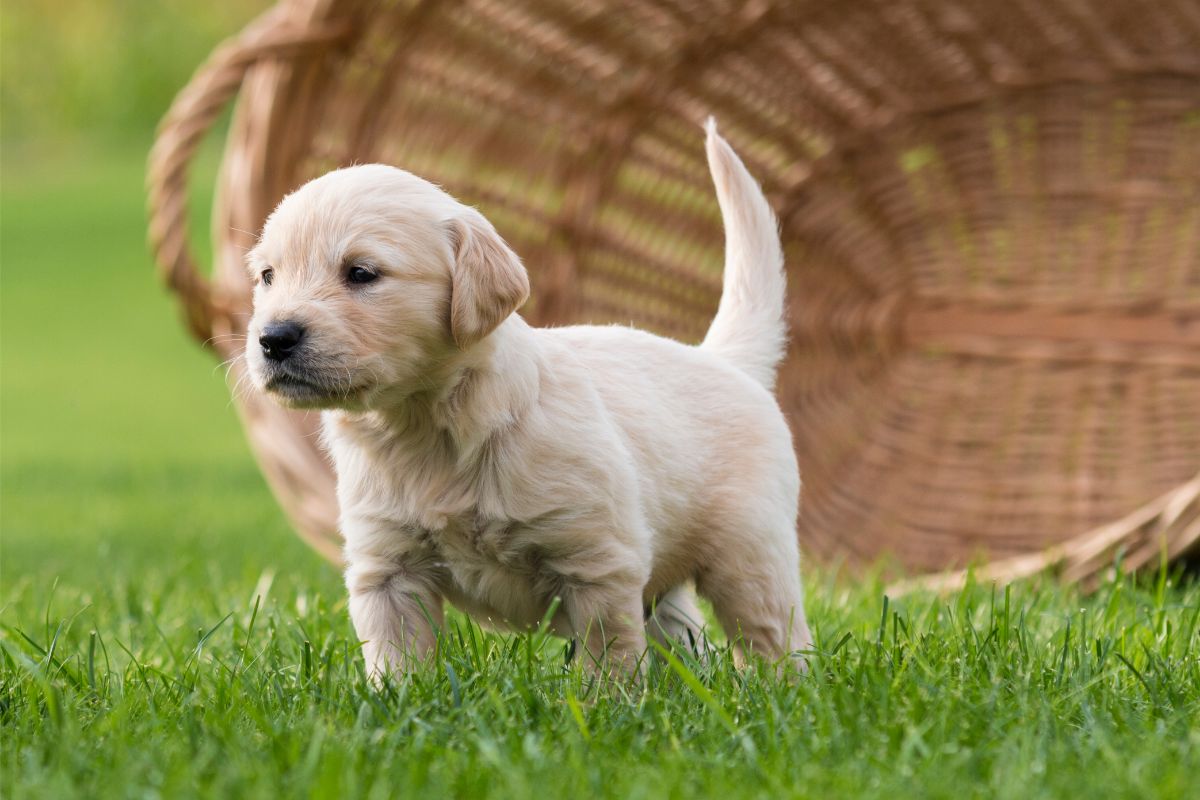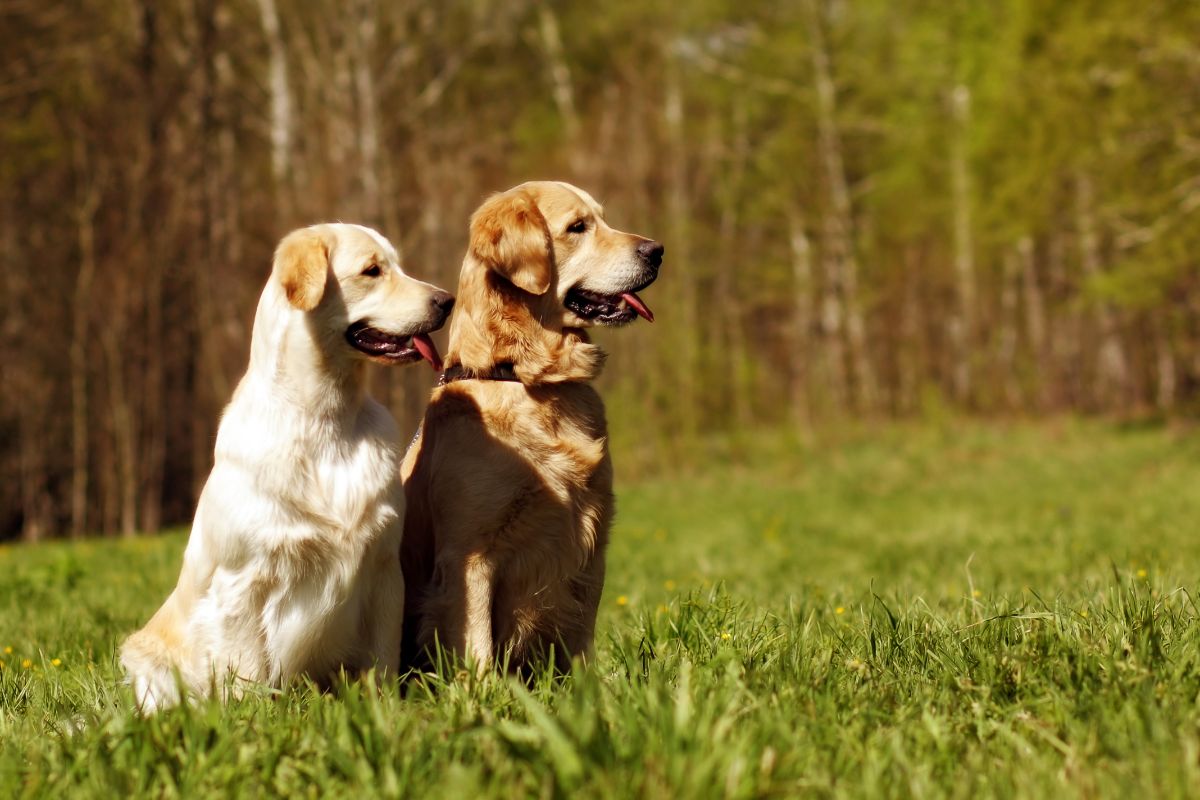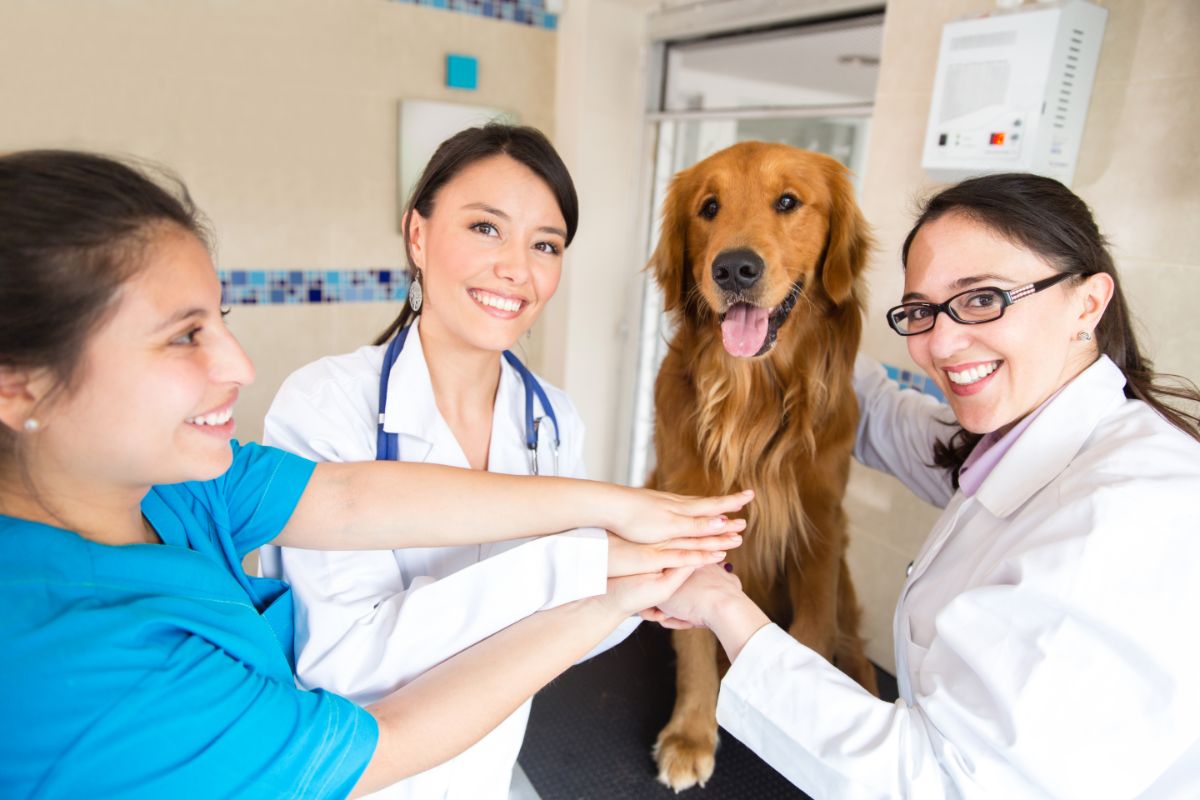Navigating the early stages of your new Golden Retriever growth can be a whirlwind of fur and potty training.
Understanding their development is crucial for a happy, healthy companion. In this comprehensive guide, we break down the week-by-week changes you can expect, offering insights into their physical and behavioral transformations.
From the initial weeks of newborn puppyhood to the exciting milestones of adolescence, we equip you with the knowledge to foster a strong bond with your furry friend.
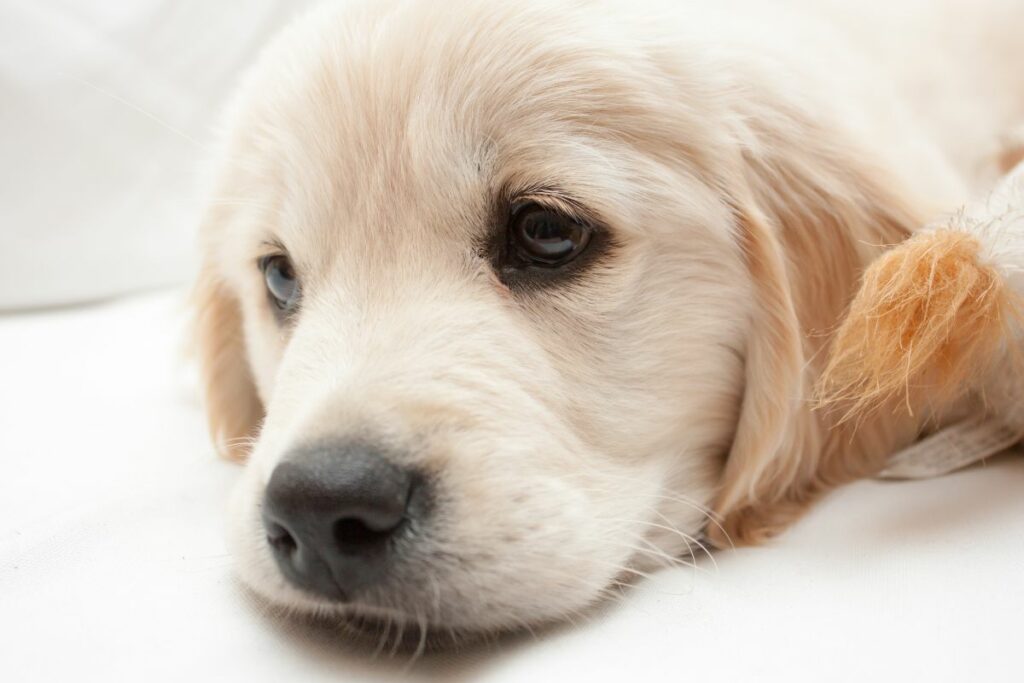
With a focus on nutritional needs, training tips, and health considerations, this guide empowers you to provide the best care at every stage of your Golden Retriever’s development.
First Week – Nurse, Sleep, Repeat
In the first week of a Golden Retriever’s life, these adorable furballs are incredibly tiny, weighing only around 1 to 2 pounds. At this stage, their eyes and ears are sealed shut, relying primarily on their sense of touch and smell to navigate their surroundings.
You’ll notice them spending the majority of their time sleeping or nursing, as their bodies are focused on rapid growth and development.
During this period, your role is crucial. Ensure a warm, quiet environment for the pips, and monitor their weight gain to ensure they’re thriving.
Gentle handling and limited disturbances are key, allowing the Mama dog to comfortably care for her litter.
As their eyes begin to open towards the end of the week, you’ll witness the first glimpses of their curious personalities emerging. It’s a delicate phase, demanding careful observation and nurturing to lay the foundation for a healthy and happy future.
Two To Three Weeks – First Steps And Weaning
During the second and third weeks of a Golden Retriever’s life, the pups undergo remarkable changes. Their weight doubles or even triples, reaching around 3–5 pounds, signaling a rapid growth phase.
At this stage, their eyes and ears fully open, granting them a broader sensory experience.
Puppies start to wobble around on unsteady legs, attempting their first wobbly steps – a heartwarming sight for any dog owner. As owners, it’s crucial to introduce a soft puppy food mash to supplement the mother’s milk, aiding the transition to solid food.
Engage in gentle play to encourage motor skill development and gradually expose them to varied stimuli to foster socialization.
Regular health checkups become more important than ever, ensuring the puppies are hitting development milestones. With a watchful eye and supportive care, you’re laying the groundwork for happy and healthy Golden Retrievers.
Four To Six Weeks – Vaccinations And Socialization
Between four and six weeks old, Golden Retriever puppies undergo a vibrant period of exploration and growth. Their weight continues to surge, reaching around 8–12 pounds, reflecting the dynamic development at this stage.
Mobility takes a leap, and you’ll witness these curious pups engaging in playful antics, testing their agility and social skills. It’s essential to provide a stimulating environment with age-appropriate toys to encourage physical and mental activity.
Introduce them to a varied diet, incorporating high-quality puppy food to support their increasing energy needs. Socialization becomes paramount, exposing them to diverse sights, sounds, and gentle human interaction to mold well-adjusted adult dogs.
Regular veterinary checkups and vaccinations are crucial during this phase, ensuring a healthy progression into the next stages of their development. Your attentive care now lays the foundation for happy, well-rounded Golden Retrievers.
Seven To Ten Weeks – Playful Pups
During the seven to ten weeks phase, your Golden Retriever experiences significant strides in both size and behavior. Weighing between 12 and 20 pounds, they’re now more coordinated, showcasing enhanced motor skills and agility.
Playful energy is abundant, and socialization remains crucial. At this point, you can focus on consistent obedience training, introducing basic commands, and reinforcing positive behaviors.
This period marks the transition to their forever home, so provide a secure, loving environment with a cozy bed and designated play areas.
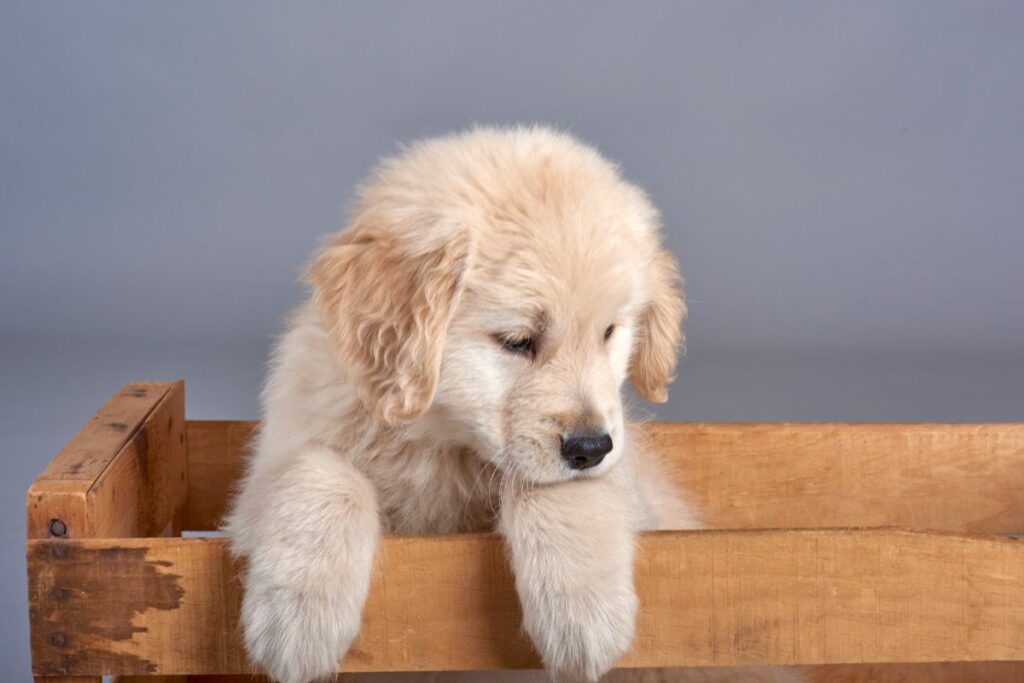
Twelve Weeks And Up – Entering Adolescence
As your Golden Retriever hits 12 weeks and beyond, they’re likely to have been rehomed away from their littermates and mother, which can result in some separation anxiety.
You can soothe this by creating a calm, gentle atmosphere and providing your pup with lots of reassurance.
By now, they typically weigh between 15 and 30 pounds, showcasing a more adult-like physique. Their puppy coat will start to shed, revealing the beautiful adult coat underneath.
This stage is crucial for reinforcing training and socialization efforts. At this point, you can start to introduce more complex training, such as the “place” command and leash training.
Keep a keen eye on their dental health, as Golden Retrievers can be susceptible to gum disease, and introducing dental care routines early can promote strong teeth and gums.
It’s worth noting that if one of the pups is a runt, their growth may be a little different – take a look at our guide to the runt here.
The Final Woof
As your Golden Retriever matures, your efforts in their care remain pivotal for fulfilling companionship. Continue fostering a nurturing environment, providing mental stimulation through interactive play, challenging toys, and regular exercise.
Uphold consistent training practices to reinforce good behavior and ensure a well-mannered adult dog. Pay attention to their evolving nutritional needs, adjusting their diet under the guidance of your veterinarian.
Dental care should be a priority, with regular checkups and dental hygiene practices.
Keep a vigilant eye on their health, watching for signs of common breed-specific issues such as hip dysplasia or allergies.
During the growth of your Golden Retriever, you’ll realize that your pup isn’t just a pet; they’re a cherished member of the family. So, enjoy the funny moments, and breathe through the difficult ones; you’ve got this!
Frequently Asked Questions
You’re likely to have a difficult time with your pup when they get to be adolescents, around eight months old, and can last for several months. At this point, they seem to forget everything they’ve been taught and display what looks like “naughty” behavior.
They’re just pushing boundaries and exploring what they can do with their body, as well as contending with new hormones. Remain consistent with your training, and remember to reinforce positive behaviors rather than punish negative ones.
Generally, you can start to see your pup’s personality when they’re around 7–8 weeks old.

